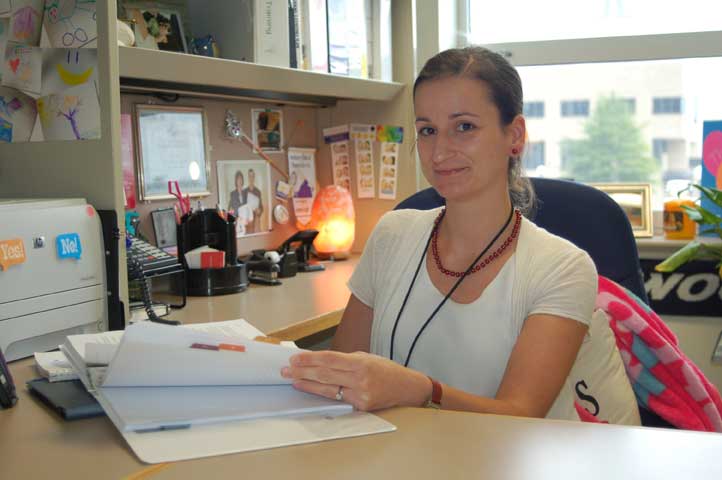Social Services with a smile
Published 2:38 pm Thursday, August 20, 2015

- Sue V. Carter, with the Child Protection division of Social Services, is excited that the Prince Edward office has been included in a pilot program to create a new policy for Social Services agencies across the state.
The Virginia Department of Social Services is in the process of creating a new policy with a “service with a smile” approach, and the Prince Edward office has been selected for a pilot program to develop the details.
“In common terms, this pilot program is based on the premise that you can attract more bees with honey than vinegar,” Family Services Specialist Sue Carter said.
Carter, with Child Protection Services (CPS) in the Prince Edward office, is excited about the new state initiative.
Trending
“This program is letting us create the policy,” she said. “The state has allowed 20 agencies to get together and come up with their own practice profiles — local workers are creating this policy.”
Each area of the state, she noted, has its own special circumstances and challenges. All, however, are centered on a basic premise.
“Our primary goal is child safety,” Carter said. “Child abuse happens due to circumstances families are in. What we do is work with the family to remove those circumstances, to make the child safe and make the family stronger.”
The pilot program also hopes to update and improve the CPS image.
“The reason people have no confidence in CPS is there is a predisposition that we’re baby snatchers,” Carter said. “In the past, a lot of times that was the case.”
The new initiative suggests a different approach. Carter used a typical complaint, the “dirty house,” as an example.
Trending
“In this situation a family is in a home that is unlivable,” she said. “We have to go out and do an assessment. Under the new profile skill set, we
Carter has been asked, why announce yourself and give the family a chance to clean up?
“Ultimately, a clean house is our goal,” Carter said. “Now we’re knocking on the family’s door to say, ‘Someone is concerned about you, can we come in?’ That’s a much different tone.”
Carter noted that this approach sometimes requires creativity.
“We had a family that had roaches and mice everywhere,” she said. “The children were literally covered in bites, but the family couldn’t move because they didn’t have a budget or credit. They obviously had to leave the house, but they had no family or friends to stay with.”
The local social workers placed the family in a motel for several nights.
“Three of us and an aide worked really hard to remove those roaches and mice,” Carter said. “The state absolutely frowns on us removing a child. If there is anything we can do to prevent removal, we will do it.”
Carter believes that trauma is at the root of most family difficulties.
“A lot of social workers become desensitized,” she said. “The fact of the matter is, you are a set of your own circumstances. We need to understand that nobody wants to lose a child. Our job is to bring the family back together, not tear them apart.”
One tool for measuring trauma is the Adverse Childhood Experience (ACE) study.
“ACE is based on such things as substance abuse, a household member being in prison or mentally ill, or sexual and verbal abuse,” Carter said. “We try to learn about trauma as well as resilience that is there. That can trump trauma.”
Studies also confirm that a child with five strong adult role models is four times more likely to graduate from high school.
“A mom, dad, grandma, teacher and next-door neighbor — that’s all it takes,” Carter said. “We’re all about collaborating with the family and learning about them in order to help them get over the trauma in their lives.”
Carter is no stranger to trauma herself.
“I’m from Bosnia,” she said. “I came to the United States with my mom and dad in 2002. Throughout the war, we moved maybe 20 times. We lived without electricity for five years — I didn’t know what air conditioning was until I was 17 and came to the U.S.”
After graduating from Longwood University with a degree in criminal justice, Carter worked at Crossroads, then the Department of Juvenile Justice until that position ended due to budget cuts.
“Roma Morris (current director of Prince Edward Social Services) heard about my job being cut and suggested I apply for a job at Social Services,” she said. “I ended up here, but I believe this is really what I’m meant for.”
The new policy resulting from the pilot program, Carter believes, will enhance her work in the community.
“It makes my job easier to know that the reason we’re doing what we do is compassion,” Carter said. “The goal is important, but it’s also important how we get there. I always tell people — if your help somebody else, you help yourself.”





